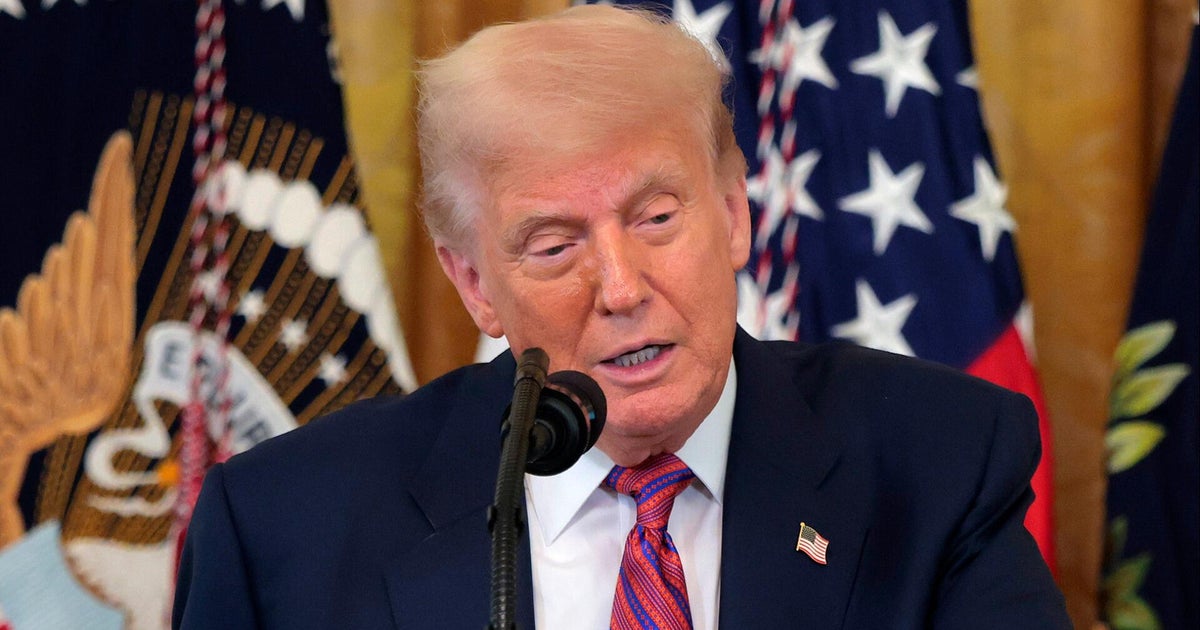As the crypto industry celebrates a cascade of approvals in the House of bills to regulate digital currencies — what Republican lawmakers dubbed “Crypto Week” — financial transparency and consumer advocates are raising alarms that the proposed laws don’t go far enough to prevent the movement of illicit funds across borders.
One of three bills approved by the House, the Guiding and Establishing National Innovation for U.S. Stablecoins, or GENIUS, Act is on its way to President Trump’s desk after passing with bipartisan support last week. The Senate voted to pass the legislation in mid-June.
The new law will set federal standards for stablecoins — cryptocurrencies pegged to another asset, including fiat currencies like the U.S. dollar or the Euro, to maintain a stable price. Under the law, “permitted payment stablecoins issuers” would be required to hold reserves equivalent to every dollar of stablecoins offered. Permitted reserves include insured bank deposits, short-term Treasury bills, central bank reserves and “any other similar government-issued asset approved by regulators.”
Stablecoin holders would also have priority over “all other claims against the issuer in bankruptcy.” The bill codifies that stablecoins are neither commodities nor securities, and exempt from regulation as such. It also says they are not federally insured.
The secondary market is totally unregulated by any of these bills. So it’s a pretty obvious loophole, a pretty obvious map for evading U.S. law.
— Scott Greytak, Transparency International
In a post on X shortly after the House vote, Sen. Bill Hagerty, a Republican from Tennessee, called the proposed legislation the “first step in making America the crypto capital of the world,” a line touted by Republicans in Congress this week.
Last month, President Trump on Truth Social urged lawmakers to move “LIGHTNING FAST” on the bill. “Get it to my desk, ASAP — NO DELAYS, NO ADD ONS,” he wrote. His support for the proposed regulatory framework comes amid growing reports of his family’s investments and returns from various cryptocurrency ventures.
Lawmakers who support the landmark crypto bills, including Republican Rep. Mike Flood of Nebraska, said it would “usher in a new era of digital asset innovation” led by the U.S. But opponents, like Michigan Democratic Rep. Rashida Tlaib, warned that allowing private companies to issue their own stablecoins backed by the dollar would “create a whole new form of shadow banking” that taxpayers would have to bail out in case of failure — a reference to the role lightly regulated financial entities played in the 2008 financial crisis.
Tech giants like Walmart and Amazon have purportedly explored the idea of launching their own stablecoins, a move that some experts told ICIJ may weaken competition among their vendors, while allowing those companies to lower expenditures.
Foreign stablecoins
The GENIUS Act has raised particular concerns among anti-corruption activists who argue the legislation is riddled with loopholes that could facilitate money laundering and sanctions evasions. Critics also point to a lack of clarity on addressing potential money laundering vectors, including stablecoins issued by foreign companies, decentralized cryptocurrency platforms and services known as mixers, which help obfuscate crypto transactions.
Without addressing these loopholes, “American digital assets infrastructure risks becoming a haven for kleptocrats” and other criminals, said Scott Greytak of the anti-corruption group Transparency International.
A key concern is what advocates are calling “the Tether loophole”: what they consider the bill’s failure to adequately regulate stablecoins issued abroad by companies registered outside the U.S., like industry giant Tether. These coins can enter the U.S. market through secondary channels, such as peer-to-peer transfers. Tether, which is registered in the British Virgin Islands, issues the USDT stablecoin.
“If you’re selling a stablecoin through Tether directly to somebody in the United States, they’re going to be covered by this law,” Greytak said. “But what if an American goes to Mexico, or to the [British Virgin Islands], or anywhere outside of U.S. jurisdiction, stocks up on a bunch of crypto and then sells it in the United States? That’s what we call the secondary market, and the secondary market is totally unregulated by any of these bills. So it’s a pretty obvious loophole, a pretty obvious map for evading U.S. law.”
In a letter sent to House leaders this month, Transparency International and other advocacy groups urged lawmakers to amend the bills to broaden the definition of stablecoin issuers to include secondary channels.
“Our idea here is that it’s pretty simple,” Greytak said. ”You should just say: if you are issuing a stablecoin directly or indirectly into somebody in the United States, you should be covered by this [law].”
In a statement to ICIJ after the legislation passed, Tether’s CEO Paolo Ardoino said the GENIUS Act “represents an important step toward establishing a clear regulatory foundation for the digital asset industry in the United States.”
Dante Disparte, chief strategy officer of Circle, the industry player behind the USDC stablecoin, said the legislation’s passage “sends a clear message that the U.S. will lead in the regulation of dollar-backed payment stablecoins.”
The Clarity Act: a bill prompts concerns
The House on Thursday also approved the Digital Asset Market Clarity Act with bipartisan support. The bill would create a regulatory regime for delineating when a cryptocurrency coin or token is a security or a commodity and therefore regulated by the Securities and Exchange Commission or the Commodity Futures Trade Commission, respectively. The Clarity Act now awaits consideration in the Senate, which is expected to release its own version of a market structure bill for crypto.
Critics say that bill, too, falls short of ensuring effective compliance mechanisms. Mark Hays, associate director for cryptocurrency and financial technology at the Americans for Financial Reform nonprofit, said many crypto platforms have combined functions performed by separate, and separately regulated, entities in conventional financial markets, operating simultaneously as custodian, broker, exchange and clearing agent.
“That model invites double dealing, front-running of their clients and conflicts of interest,” Hays said. “The industry wants a regulatory framework that allows that and many other things like that to continue. To basically allow the crypto industry to do the same thing that the current financial sector does, but with weaker, less stringent rules.”
Amanda Fischer, policy director and chief operating officer at nonprofit Better Markets and a former chief of staff at the SEC, called the Clarity Act an effort to “codify the existing business models of these crypto companies” that “puts some rules and regulations around the offerings, but it much more bends to meet the company than it bends to meet existing securities laws.”
Rules around insider trading, market manipulation and how markets are surveilled are “way weaker in crypto under this bill,” Fischer said. Crypto exchanges like Coinbase are able to own their own affiliated venture capital funds, invest in crypto companies and simultaneously list them on their platform — creating a potential conflict of interest.
The industry wants a regulatory framework … to basically allow the crypto industry to do the same thing that the current financial sector does, but with weaker, less stringent rules.
— Mark Hays, Americans for Financial Reform on the Clarity Act
Fischer said it would be like “if you’re the New York Stock Exchange and you’re investing in one biotech startup and not a competing biotech startup, and you decide: I’m going to let this company, my affiliated company, list on my exchange and get to ring the bell and get access to all those investors — but I’m not going to let their competitor list.
“Those prohibitions are well established in the stock market,” she said. “Even though investors interact with crypto in the same way that they interact with the stock market, there’s just vastly, vastly different protections, and it’s frankly because protections in the stock market are expensive to comply with.”
A third bill, called the Anti-CBDC Surveillance State Act, prohibits the U.S. Federal Reserve from issuing a digital currency and passed by a narrower margin than its two counterparts Thursday. House Majority Whip Tom Emmer, an advocate for the bill, said it would bar the Federal Reserve from surveilling and restricting Americans’ purchasing habits.
Dozens of countries, including France, Brazil, China, Australia and India, have launched Central Bank Digital Currency, or CBDC, pilots, according to the Atlantic Council, for different reasons, like to increase accessibility to cross-border payments, supplement cash in retail transactions and help facilitate monetary flows across financial institutions.
Cross-border scams
Crypto experts and consumer advocates said the crypto bills lack strong consumer protections, even as President Trump’s “Big Beautiful Bill” significantly cuts the annual funding of the Consumer Financial Protection Bureau. Congress created the agency in the aftermath of the 2008 financial crisis in order to police banks, payday lenders, credit bureaus, student loan services, debt collectors and other financial firms.
“In the GENIUS Act, CFPB is not even mentioned — and that agency’s sole purpose is protecting consumers,” said Aleks Ring, an advocate with the anti-cybercrime organization Operation Shamrock. “Regarding anti-money laundering and illicit financing, it is kind of just open to interpretation when it comes to foreign businesses. So, can they use the loopholes to do more harm to U.S. citizens?”
Ring, a forensic accountant who focuses on crypto and has assisted law enforcement in tracing transactions related to scams, said the majority of her cases cross international borders. “I’ve yet to trace something that’s local, in the United States,” Ring said. “To be honest, everything goes offshore.”
Scammers have increasingly shifted to crypto because it’s faster, easier to use, and it is harder to recover funds even when the transactions are traced, Ring said. Unlike wire transfers, which banks can sometimes reverse with law enforcement help, crypto transactions are largely irreversible. Scammers can “open wallets showing a fake ID” and move funds quickly. Once the money is sent, recovering it is more difficult, especially when it’s sitting in foreign or uncooperative exchanges, she said.
Crypto-related scams were a component of almost 150,000 financial fraud complaints reported to the FBI in 2024, according to the agency’s most recent annual Internet Crime Report, with victims reporting $9.3 billion lost to cryptocurrency fraud.
Beyond stronger regulations, Jorij Abraham, managing director of the Global Anti-Scam Alliance, stressed the need for greater collaboration among platforms commonly exploited by scammers, as well as greater public awareness.
“We really believe all the stakeholders need to do more, because it’s now too easy to set up an online store, advertise it, create a bank account, launder the money,” Abraham said. “We see stakeholders doing more and more… but they need to raise the bar.”
An example: Abraham said the online dating industry has made significant investments in fraud prevention. The platforms actively monitor for unusual behavior, like one person messaging hundreds of users at once. “I really see them investing a lot because scammers are hurting their platform,” he said. But not all platforms have an incentive to intercept bad actors.
“With some crypto platforms, more transactions just mean more money,” Abraham said.









 English (US) ·
English (US) ·